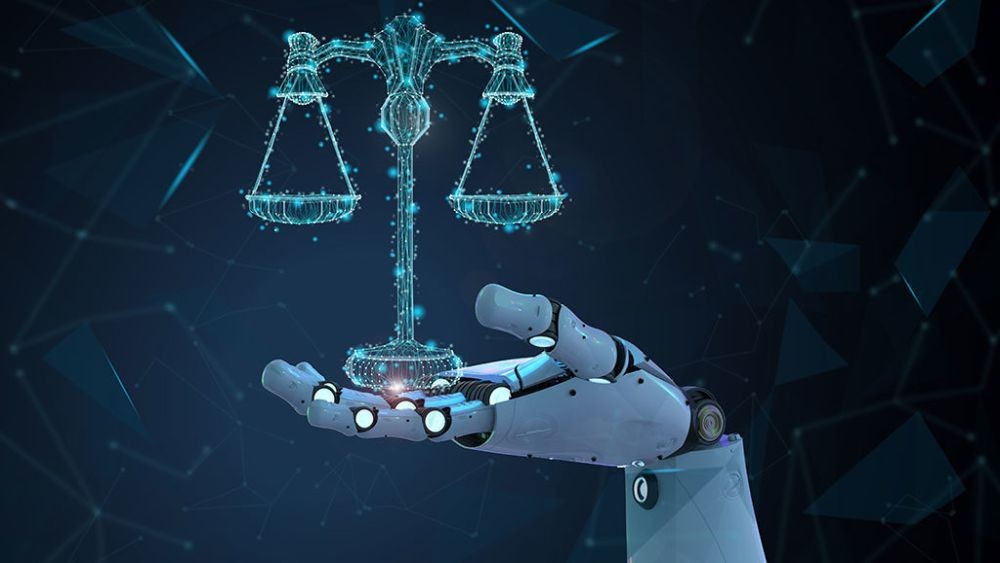IANS Photo

New Delhi, November 25 (IANS) In recent years, India has seen a surge in Artificial Intelligence (AI) adoption, transforming its technological landscape.
As a global IT hub, India leverages AI for innovation and economic growth. In business and manufacturing, AI enhances efficiency, streamlining processes for global competitiveness.
The healthcare sector benefits from AI in diagnostics, personalised medicine, and drug discovery, accelerating research and improving healthcare quality. AI-driven platforms revolutionise education, catering to diverse learning needs and enabling remote learning.
However, challenges such as data privacy, ethical concerns, and the need for a skilled workforce remain. Addressing these challenges is crucial for sustaining the momentum of AI adoption in India.
As the nation continues to integrate AI into its fabric, the transformative impact on industries, society and governance is poised to be a defining feature of India's technological evolution.
Indian laws currently face challenges in adequately addressing the complexities of AI. Gaps in regulations regarding AI ethics, data protection, and accountability leave room for potential misuse.
“The Indian laws are completely inadequate to deal with AI. One cannot blame the government or the lawmakers because artificial intelligence has been with us for the last more than 50 years, but the kind of massive advancements that have taken place in the last few years have been so phenomenal that almost every country has been taken by surprise,” said Pavan Duggal, Chairman, International Commission on Cyber Security Law.
Developed by OpenAI, an artificial intelligence research laboratory, ChatGPT is a language model designed for natural language understanding and generation, making it capable of engaging in text-based conversations.
With its advent, there have been valuable advantages such as efficient information retrieval and natural language interaction. However, there is potential for misuse in generating deceptive content or spreading misinformation due to its generative nature.
Speaking to IANS, Duggal said, “Ever since November 30, 2022, when ChatGPT came across, it's been a different ball game altogether. India, as of now, does not have any dedicated legal framework on artificial intelligence. The only framework that we have is the Indian Information Technology Act 2000, which is a 23-year-old legislation, but it is completely silent on artificial intelligence.”
He added: “If I look at artificial intelligence as a cognitive intelligence of machines, then since the IT Act deals with computers, computer systems, the network, electronic data, it can be broadly brought within its ambit.”
However, Duggal said that there's no denying the fact that countries across the world are now coming up with new legal frameworks to deal with AI and it's time that the Indian government comes up with appropriate legal frameworks in this regard as well.
Data privacy in this era is a critical and evolving concern. With increasing digitisation of information and widespread use of technology, individuals' personal data is constantly generated, shared and stored.
Issues such as unauthorised access, data breaches, and the potential misuse of personal information by corporations and governments underscore the importance of robust data privacy measures.
As technology advances, the ongoing challenge is to strike a balance between innovation and safeguarding individuals' privacy rights.
“Indian laws have never been made keeping in mind either the AI ecosystem, or AI applications. When I look at privacy issues, though the Supreme Court has declared the right to privacy as a fundamental right under the case of Justice Puttaswamy vs Union of India, the fact still remains that India doesn't have privacy legislation,” Duggal said.
He said that some aspects of privacy are covered under the IT Act and IT rules.
“On August 11, India passed the Digital Personal Data Protection (DPDD) Act 2023, but even there, only some elements of privacy are covered,” he added.
The objective of the DPDP Act, which has not been implemented yet, is to formulate evolvable rules that are consistent with the changing trends in technologies and can be updated according to the needs of the country's digital infrastructure.
Talking about privacy aspects or protections or collection of data for AI applications, Duggal said that there's none that exists in the country as of now.
As of now, he said, it appears that India has not made up its mind yet.
“The concerned ministry had some meetings with social media companies on how they can regulate or prevent the dissemination of deepfake videos. They are going through the intermediary liability route, but even for that, changes have to be made in the rules and regulations by the Central government, and Section 87 of the IT Act,” Duggal said.
China introduced and implemented the world's first law on generative artificial intelligence on August 15. Similarly, the draft AI Act has already been passed in the European Union. Further, New York has implemented a new law on artificial intelligence, which mandates that there must be appropriate audits to prevent discrimination and bias in AI systems.
“I think India is currently lagging because it has not yet made up its mind as to how it wants to go forward in the direction regulating AI. And India is not alone. A large number of countries today are still in that to-be or not-to-be position,” said Duggal, adding that he believes the time is now that India needs to be learning from the experiences of other countries and come up with its own customised approach so that more and more Indians can, on the one hand, be empowered to go ahead and use the AI for positive, constructive purposes, while on the other hand, there should also be appropriate deterrent punishments and provisions to prevent the misuse of AI.
“Further, there's an absolute need that the rights, duties and responsibilities of all the stakeholders in the AI ecosystem are specifically addressed. And the intellectual property rights issues pertaining to AI also need to be addressed in the forthcoming legislation. There is hardly any sector of human activity or endeavour which is not going to be impacted by AI,” Duggal said.
In conclusion, India's rapid embrace of AI underscores its transformative potential across industries, healthcare, education, and governance. However, the absence of a dedicated legal framework poses challenges, with gaps in regulations concerning AI ethics, data protection and accountability.
Urgent action is needed to formulate comprehensive laws that address these concerns, ensuring responsible AI development and safeguarding privacy rights.






